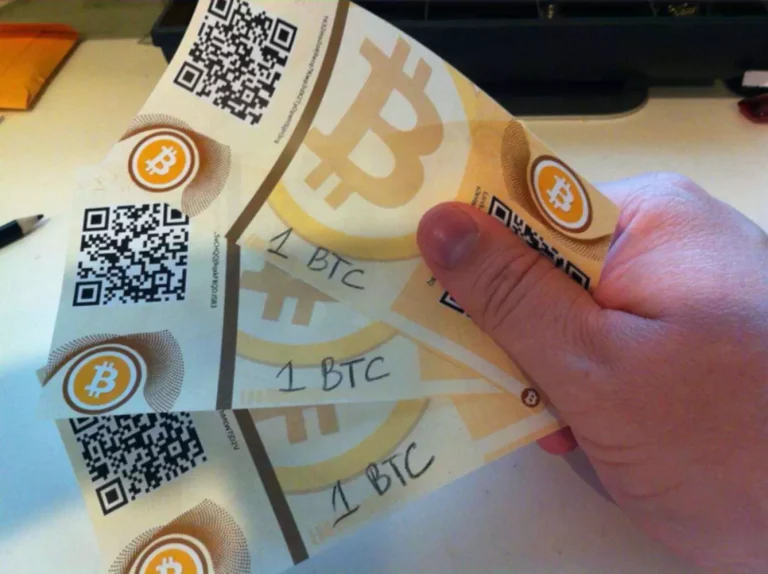What is DeFi? The New York Times
It is unregulated and its ecosystem is riddled with infrastructural mishaps, hacks, and scams. Each entity in the chain receives payment for its services, generally because merchants must pay for the use of credit and debit cards. “In DeFi anyone can launch their own project, token, contract — that is why you should be aware of scams and low quality projects,” notes Mozgovoy. Aside from being aware of scams, in practicality, Mozgovoy states that with DeFi users can save, lend, or take part in derivatives and exchanges. “DeFi is new and experimental. Since everything is code, it can have bugs. Bugs lead to money loss or hacks. DeFi is new and complicated,” says Mozgovoy.
- Since decentralized finance is still an emerging field, it currently faces several challenges.
- On some platforms, transactions move at a snail’s pace and this will continue to be the case until scalability improves, which is the idea behind the development of Ethereum 2.0, also known as Eth2.
- The good news, though, is that DeFi protocols are getting easier to use and safer by the day.
- DeFi boomed in 2020, bringing an influx of projects into the cryptosphere and popularizing a new financial movement.
In contrast, the DeFi approach relies on smart contracts and a P2P decentralized approach to enable financial services. Instead of asset custody being the responsibility of the centralized exchanges, it is the individual users that hold custody of their own cryptocurrency assets. Liquidity pools are a necessary tool for many decentralized exchanges to facilitate trading. They provide trading liquidity for buyers and sellers, who pay a fee for their transactions. To become part of a pool, liquidity providers can send specific funds to a smart contract and receive pool tokens in return, earning passive profit based on the fees traders pay when they interact with that pool. Financial assets can be transferred or purchased in a matter of seconds or minutes.
Uses of DeFi
Investopedia makes no representations or warranties as to the accuracy or timeliness of the information contained herein. In the blockchain, transactions are recorded in blocks and then verified by other users. If these verifiers agree on a transaction, the block is closed and encrypted; another block is created that has information about the previous block within it. “In DeFi you hold your money, you control where your money goes and how it’s spent. DeFi is efficient, since everything is programmable, in a click of a button you can perform complex transactions,” explains Mozgovoy.
Essentially, dApps are similar to the normal apps we use every day, but they’re powered behind the scenes by smart contracts—digital agreements that execute automatically when the contract terms are met. DeFI is making its way into a wide variety of simple and complex financial transactions. It’s powered by decentralized apps called “dapps,” or other programs called “protocols.” Dapps and protocols handle transactions in the two main cryptocurrencies, Bitcoin (BTC) and Ethereum (ETH). When you make a transaction in your conventional checking account, it’s recorded in a private ledger—your banking transaction history—which is owned and managed by a large financial institution. Blockchain is a decentralized, distributed public ledger where financial transactions are recorded in computer code. Decentralized finance, also known as DeFi, uses cryptocurrency and blockchain technology to manage financial transactions.
What is DeFi?
For instance, a smart contract can be created to send funds to a particular account on a regular basis, and this will continue provided enough funds are available. Once a smart contract is set up, it cannot be altered, so funds can’t be re-routed and sent to a different account. Decentralized finance eliminates intermediaries by allowing people, merchants, and businesses to conduct financial transactions through emerging technology. Through peer-to-peer financial networks, DeFi uses security protocols, connectivity, software, and hardware advancements. Unlike centralized financial institutions such as banks, exchanges or brokerage firms, decentralized financial systems provide uncensored access for everyone. By using crypto networks and smart contracts instead of centralized intermediaries, DeFi protocols can offer financial services that are available to anyone with an Internet connection — 24 hours a day, 7 days a week.
As a result, there are few paths for consumers to access capital and financial services directly. They cannot bypass middlemen like banks, exchanges and lenders, who earn a percentage of every financial and banking transaction as profit. Within the DeFi model and its usage of smart contracts, there is an emphasis on empowering the individual user.
Individuals and businesses are always looking for a faster, safer, and more economical way to make peer-to-peer (P2P) financial transactions. What DeFi has to offer goes well beyond an incremental improvement (as opposed to, say, the advent of the automated teller machine or direct deposit). It promises innovation that’s unachievable using traditional systems and technologies. Blockchain and cryptocurrency are the core technologies that enable decentralized finance. Today, almost every aspect of banking, lending and trading is managed by centralized systems, operated by governing bodies and gatekeepers. Regular consumers need to deal with a raft of financial middlemen to get access to everything from auto loans and mortgages to trading stocks and bonds.
COINTELEGRAPH NEWSLETTER
Much of the technology in the DeFi space aims to improve the current financial system, potentially improving the user experience (for both businesses and their clients). In order for DeFi to reach a critical mass, some time and effort is going to need to be spent on user interfaces that appeal to a much larger audience. And unlike deposits in a regular bank, which are insured by the F.D.I.C., crypto tokens usually can’t be replaced or recovered once they’re gone. But there’s nothing in the law, at present, that requires stablecoin issuers to have one-to-one backing. And if they don’t have enough reserves to cover the stablecoins they’re issuing, the whole thing could collapse if enough investors decide to pull their money out all at once.

From taking out the middleman to turning basketball clips into digital assets with monetary value, DeFi’s future looks bright. When we say blockchain is decentralized, that means there is no middleman or gatekeeper managing the system. Transactions are verified and recorded by parties who use the same blockchain, through a process of solving complex math problems and adding new blocks of transactions to the chain. When we say that blockchain is distributed, that means all parties using a DeFi application have an identical copy of the public ledger, which records each and every transaction in encrypted code.
If you don’t repay the loan in Dai by the due date, the smart contract sells your ETH to repay the debt plus interest. Smart contracts follow “if/when…then…” statements written into code on a blockchain, making them self-executing. If a certain event occurs, the smart contract activates and completes the next action in the agreement. Smart contracts are computer programs that can automatically execute the terms of an agreement — a loan, a trade, a purchase, and other transactions — when certain conditions are met without the approval of a third party.
As my colleague, Jeanna Smialek, explained in an article on stablecoins last year, the worry stems from the fact that stablecoin issuers aren’t legally required to back their coins one-to-one with safe, cash-like assets. In short, because DeFi is mostly unregulated, with few of the consumer protections and safeguards that exist in the traditional financial system. Or you could take a cue from regulators and politicians, who are increasingly looking to DeFi’s growth with concern. DeFi’s total value locked or T.V.L. — a standard way of measuring the value of crypto held in DeFi projects — is currently about $77 billion, according to DeFi Pulse. That would make DeFi something like the 38th largest bank in the United States by deposits, if it were a bank.
Investors will soon have more independence, which will allow them to “deploy [assets] in creative ways that seem impossible today,” Simerman says. DeFi also carries big implications for the big data sector as it matures to enable new ways to commodify data, Simerman says. Blockchain is a record-keeping technology designed to make open Finance vs decentralized finance it impossible to hack the system or forge the data stored on it, thereby making it secure and immutable. Current laws were crafted based on the idea of separate financial jurisdictions, each with its own set of laws and rules. DeFi’s borderless transaction ability presents essential questions for this type of regulation.
DeFi stands for decentralized finance, which means everything from simple transfers to complex financial functions are facilitated without any third-party involvement. To help you understand DeFi, let’s first cover traditional, centralized finance. When it comes to emerging industries, early investment can often bring outsize returns. But it’s important to understand the risks, which can equal or outweigh the potential returns. But if and until it does, the DeFi space will be rife with uncertainty and speculation.
It all boils down to having faith in the people or organization behind the platform. CeFi platforms, like Coinbase.com, are custodial, which means it stores crypto for you. You can, however, utilize a Coinbase wallet in the same way you would a regular cash wallet, giving you complete control over your crypto assets. Lending may have started it all, but DeFi applications now have many use cases, giving participants access to saving, investing, trading, market-making and more. Decentralized finance’s ultimate goal is to challenge and eventually replace traditional financial services providers. DeFi often harnesses open-source code, allowing anyone the opportunity to build on pre-existing applications in a permissionless, composable manner.
With open source software, anybody can inspect it and verify that it works as intended. No — crypto networks are permissionless, meaning anyone with an Internet connection can use them. The only fees you pay throughout the process are ones to support the Ethereum network.
To send or receive money in the traditional financial system you need intermediaries, like banks or stock exchanges. And in order to feel comfortable doing the transaction, all parties need to trust that those intermediaries will act fairly and honestly. The Ethereum https://www.xcritical.in/ platform lets you send digital assets around the world seamlessly. While borrowing and lending are key advantages of DeFi, there are also applications for savings, where you can earn interest on crypto, trading opportunities, fund management, and insurance.

















